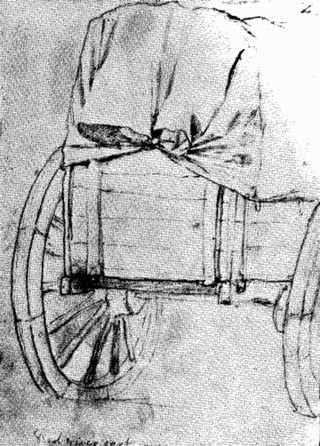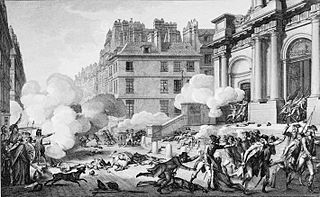Related Research Articles
Hervé de Charette is a French centrist politician. He is a descendant of the royalist military leader François de Charette and of king Charles X of France. Member of the Union for French Democracy (UDF), he was elected deputy for the first time in 1986 as representative of the Maine-et-Loire département. During the first cohabitation, from 1986 to 1988, he served as Minister of Civil Service, then, during the second, from 1993 to 1995, as Minister of Housing. In the UDF, he remained faithful to the leader Valéry Giscard d'Estaing. Like him, and contrary to the most part of the UDF politicians, he supported the winning candidacy of Jacques Chirac in the 1995 presidential election and not that of Prime Minister Édouard Balladur. In this, after the campaign, he found and led the Popular Party for French Democracy (PPDF), a component of the UDF, and served as Minister of Foreign Affairs until the defeat of the Presidential Majority in the 1997 legislative election. In 2002, he joined the Union for a Popular Movement. In December 2009, he left this party for the Nouveau Centre.

Cai Yan, courtesy name Wenji, was a Chinese composer, poet, and writer who lived during the late Eastern Han dynasty of China. She was a daughter of Cai Yong. Her courtesy name was originally Zhaoji, but was changed to Wenji during the Jin dynasty to avoid naming taboo because the Chinese character for zhao in her courtesy name is the same as that in the name of Sima Zhao, the father of the Jin dynasty's founding emperor, Sima Yan. She spent part of her life as a captive of the Xiongnu until 207, when the warlord Cao Cao, who controlled the Han central government in the final years of the Eastern Han dynasty, paid a heavy ransom to bring her back to Han territory.

The Red River cart is a large two-wheeled cart made entirely of non-metallic materials. Often drawn by oxen, though also by horses or mules, these carts were used throughout most of the 19th century in the fur trade and in westward expansion in Canada and the United States, in the area of the Red River and on the plains west of the Red River Colony. The cart is a simple conveyance developed by Métis for use in their settlement on the Red River in what later became Manitoba. With carts, the Metis were not restricted to river travel to hunt bison. The Red River cart was largely responsible for commercializing the buffalo hunt.
Adeline Yen Mah (馬嚴君玲) is a Chinese-American author and physician. She grew up in Tianjin, Shanghai and Hong Kong, and is known for her autobiography Falling Leaves. She is married to Professor Robert A. Mah with whom she has a daughter, and a son from a previous marriage.

François Athanase de Charette de la Contrie was a Franco-Breton Royalist soldier and politician. He served in the French Navy during the American Revolutionary War and was one of the leaders of the War in the Vendée against the French Revolution. His great-nephew Athanase-Charles-Marie Charette de la Contrie was a noted military leader and great-grandson of Charles X, the penultimate king of France.
The "Minnesota Rouser" is the fight song of the University of Minnesota. It is played at all Minnesota Golden Gophers games.

Mah Bow Tan is a Singaporean former politician who served as Leader of the House between 2007 and 2011, Minister for National Development between 1999 and 2011, Minister for the Environment between 1993 and 1995, and Minister for Communications between 1991 and 1999. A former member of the governing People's Action Party (PAP), he was the Member of Parliament (MP) representing the Tampines East ward of Tampines GRC between 1988 and 2015.
Lingling is an unclassified mixed Chinese dialect. It is spoken by 20,000 ethnic Miao in Longsheng County, Guangxi. It is only spoken within the community; with outsiders, Southwestern Mandarin is spoken.

13 Vendémiaire, Year 4 in the French Republican Calendar, is the name given to a battle between the French Revolutionary troops and Royalist forces in the streets of Paris. This battle was part of the establishing of a new form of government, the Directory, and it was a major factor in the rapid advancement of Republican General Napoleon Bonaparte's career.
Minnesota March is a march for wind band written by John Philip Sousa in 1927 for the University of Minnesota at the request of the Minnesota football team. Sousa used Indian themes in this march, and later added field drum and bugle parts. The piece was one of four marches written by Sousa expressly for a university. It is now used as one of the university's school songs, with lyrics written in 1927 by university band director Michael Jalma. The piece is regularly performed by the University of Minnesota Marching Band and pep bands and often sung by students at various athletic events and ceremonies.
"Minnesota Fight" is one of several school songs of the University of Minnesota. Responding to a 1925 contest to find an additional fight song for the school, university graduate Truman E. Rickard entered a piece entitled "Minnesota! Let's Go!". Rickard shared the contest's hundred-dollar prize with another entry, Marion Bassett's "Our Minnesota". Rickard's fight song can still be heard at Minnesota Golden Gopher athletic events, but is now known as "Minnesota Fight".
"Go Gopher Victory" is one of the school songs of the University of Minnesota. Composed in 1925 by University graduate Addison H. Douglass, this tune was originally entitled "The Gopher M". It is frequently played at Minnesota Golden Gopher athletic events by the University of Minnesota Marching Band.

Pierre G. "The Duffer" Charette is a Canadian curler from Gatineau, Quebec. He currently coaches the Silvana Tirinzoni rink
The 1894 Minnesota Golden Gophers Football Team represented the University of Minnesota as an independent during the 1894 college football season. It was Minnesota's only season under head coach Thomas Cochran, and it featured Minnesota's first trip to Madison, Wisconsin, a game which they were heavily favored to win. However, Wisconsin won a hard-fought game with a score of 6–0. The season also featured Minnesota's first game against Purdue, resulting in a decisive 24–0 victory.

Sweden: Heaven and Hell is a 1968 Italian mondo film directed, written and edited by Luigi Scattini. It features actress Marie Liljedahl and is narrated by Enrico Maria Salerno, while the English dub is provided by British actor Edmund Purdom, and the French version by Jean Topart.

Ozaawindib (Ojibwe) was an early 19th century agokwa warrior. Ozaawindib, who was born male, at times wore attire more typically associated with women. Ozaawindib had several husbands, and was considered in a number of ways to be gender-nonconforming.

Benoit Charette is a Quebec politician elected in the 2008 provincial election for Deux-Montagnes. He was a member of the Parti Québécois, but left the party on June 21, 2011 to protest the party's focus on sovereignty. On December 19, 2011 he joined the Coalition Avenir Québec and is the current Minister of Sustainable Development and Environment. In 2021 he was assigned a new provincial role in combating racism.
Gong Kai was a Chinese painter, poet, and politician during the last years of the Song dynasty. The latter part of the Song dynasty, in which Gong Kai lived, is known as the Southern Song dynasty (1127–1279). After the fall of the Song dynasty to the Yuan dynasty, he became what was known as a scholar-amateur painter. The artists of the Song were mostly influenced by momentary and sporadic pleasures and beauty. However, there is no evidence that Gong Kai painted during this period. Instead, most paintings attributed to Gong Kai are from Yuan dynasty (1271–1368).
Ski-U-Mah is a slogan used at the University of Minnesota since 1884, when the newly emerging football team was coached by Thomas Peebles, a philosophy professor and former Princeton University faculty member.

Datuk Seri Mah Siew Keong is a Malaysian politician who served as Minister of Plantation Industries and Commodities and Minister in the Prime Minister's Department in the Barisan Nasional (BN) administration under former Prime Minister Najib Razak from June 2014 to the collapse of the BN administration in May 2018, Member of Parliament (MP) for Teluk Intan from November 1999 to March 2008 and again from May 2014 to May 2018 and Member of the Perak State Legislative Assembly (MLA) for Pasir Bedamar from April 1995 to November 1999. He is a member and Advisor of the Parti Gerakan Rakyat Malaysia (GERAKAN), a component party of presently the Perikatan Nasional (PN) and formerly BN coalition. He also served as the 5th President of GERAKAN from October 2013 to September 2018.